Education is a critical aspect of human life that serves as a means of acquiring knowledge, skills, and values. Philosophy and the aims of education are critical components that play a crucial role in shaping the educational landscape. Philosophy is the branch of knowledge that studies fundamental questions concerning existence, values, reason, and the universe’s nature. Aims of education refer to the purposes or goals that educators seek to achieve through teaching and learning. In this post, we will explore the relationship between philosophy and the aims of education, the different philosophies of education, and the importance of developing clear aims of education.
The key differences and similarities between the philosophy and aims of education:
| Aspect | Philosophy of Education | Aims of Education |
|---|---|---|
| Definition | The set of beliefs and principles that guide the practice and objectives of education. | The goals or outcomes that education seeks to achieve for students. |
| Focus | Underlying theories and approaches that shape educational methods and practices. | Specific targets and outcomes that education aims to achieve. |
| Purpose | To provide a framework for understanding the purpose and process of education. | To outline what education should accomplish for individuals and society. |
| Scope | Includes various philosophical perspectives such as progressivism, essentialism, and constructivism. | Covers broad objectives like intellectual development, social skills, and moral values. |
| Nature | Theoretical and conceptual, exploring fundamental questions about knowledge, learning, and teaching. | Practical and goal-oriented, focusing on concrete outcomes and measurable achievements. |
| Examples | – Constructivism: Learning as a process of constructing meaning from experiences. – Essentialism: Emphasis on core knowledge and skills. |
– Academic achievement: Ensuring students acquire essential knowledge. – Social development: Fostering interpersonal skills and citizenship. |
| Influence on Practice | Shapes teaching methods, curriculum design, and educational policies based on philosophical beliefs. | Determines the specific educational programs, assessments, and standards used in schools. |
| Role in Education | Provides the theoretical basis for why certain methods and practices are used. | Guides the creation of educational objectives and standards. |
| Evolution | Evolving with new educational theories and philosophical debates. | Can shift based on societal needs, educational reforms, and policy changes. |
| Examples of Philosophers | – John Dewey (Progressivism) – Paulo Freire (Critical Pedagogy) |
– Education for citizenship – Education for workforce readiness |
DEFINING PHILOSOPHY AND AIMS OF EDUCATION
Philosophy and the aims of education are interrelated, and it is essential to understand the connection between them. Philosophy provides the foundation for educational theories, methods, and practices. It shapes the values, beliefs, and attitudes that educators bring to the classroom. The philosophy of education informs the aims of education, which serve as a guide for educational practices. The aims of education define what educators hope to achieve through teaching and learning. Philosophy is the study of fundamental questions about existence, knowledge, values, and reality. It provides a framework for understanding the world around us and our place in it. In the context of education, philosophy is concerned with the study of the nature and purpose of education, the role of the teacher and student, and the methods of teaching and learning.
The philosophy of education refers to the underlying beliefs and values that inform educational practices. It shapes the goals and objectives of education and provides a framework for designing curricula, selecting teaching methods, and evaluating student learning. The philosophy of education is influenced by various factors such as cultural, social, and historical contexts, personal experiences, and philosophical traditions.
Aims of education, on the other hand, refer to the goals and objectives that educators hope to achieve through teaching and learning. The aims of education reflect the underlying philosophy of education and provide a guide for educational practices. They may include cognitive goals such as developing critical thinking skills and acquiring knowledge, affective goals such as promoting emotional and social development, and behavioral goals such as developing practical skills.
The relationship between philosophy and the aims of education is crucial. The philosophy of education provides the foundation for the aims of education. For example, if the philosophy of education emphasizes the development of critical thinking skills, then the aims of education may include developing analytical and problem-solving abilities. If the philosophy of education emphasizes the importance of social and emotional development, then the aims of education may include promoting self-awareness, empathy, and emotional regulation.
The aims of education are informed by the broader social and cultural contexts in which education takes place. For example, in societies where the economy is highly industrialized, the aims of education may focus on developing technical and vocational skills that prepare students for the workforce. In societies where democracy is highly valued, the aims of education may focus on developing civic knowledge and skills that promote democratic participation.
https://youtube.com/live/PwlONu13GoQ
If we summarize the philosophy and aims of education, these are interrelated and mutually reinforcing. The philosophy of education shapes the aims of education, which serve as a guide for educational practices. The aims of education reflect the broader social and cultural contexts in which education takes place. Understanding the relationship between philosophy and the aims of education is essential for designing effective educational programs that meet the needs of students and society.
MAJOR PHILOSOPHIES OF EDUCATION
There are various philosophies of education, and each one has its unique perspective on teaching and learning. Understanding these philosophies is critical in shaping educational practices. Here are some of the major philosophies of education:
PERENNIALISM
Perennialism is a philosophy of education that emphasizes the study of timeless ideas and concepts that are essential to a person’s education. It emphasizes the development of critical thinking skills and the understanding of fundamental concepts that underlie all subject areas. While Perennialism has been influential in the development of education in the United States and around the world, it is not without its critics.
Perennialism is a philosophical approach to education that emphasizes the study of timeless ideas and concepts that are essential to a person’s education. The term “perennial” refers to something enduring or timeless. Perennialists believe that education should focus on the study of enduring knowledge that transcends time and culture. This philosophy is often associated with the study of the classics, which are considered to be timeless works of literature, art, and philosophy.
Perennialists believe that education should be centered around the development of critical thinking skills and understanding the concepts that underlie all subject areas. They view education as a process of inquiry and discovery, where students are encouraged to question and explore the world around them. Perennialists believe that the purpose of education is to develop a deep understanding of fundamental concepts and principles that can be applied in all areas of life.
One of the key features of Perennialism is the emphasis on the study of the classics. Perennialists believe that the classics represent the best of human knowledge and wisdom and that studying them can help students develop a deep understanding of fundamental concepts and principles. The classics are seen as a repository of enduring ideas and values that have been passed down through the ages.
Perennialism also emphasizes the importance of developing critical thinking skills. Perennialists believe that education should not just be about memorizing facts and figures, but about developing the ability to think critically and solve problems. They believe that students should be encouraged to question and analyze information and to develop their ideas and opinions.
Perennialism is often contrasted with other educational philosophies, such as progressivism and social reconstructionism. Progressivists, for example, emphasize the importance of experiential learning and the use of hands-on activities to promote learning. Social Reconstructionists, on the other hand, emphasize the role of education in promoting social change and addressing social inequalities.
Despite these differences, Perennialism has had a significant influence on education in the United States and around the world. Many schools and universities have adopted a Perennialists approach to education, emphasizing the study of the classics and the development of critical thinking skills. Perennialism has also been influential in the development of curricula in fields such as philosophy, literature, and history.
Critics of Perennialism argue that it can lead to a narrow and elitist view of education. They argue that focusing too much on the classics can lead to a neglect of other important areas of knowledge, such as science and technology. They also argue that Perennialism can lead to a focus on abstract concepts and ideas, rather than practical skills that are necessary for success in the modern world.
PROGRESSIVISM
Progressivism is a philosophy that emphasizes the importance of experiential learning and the practical application of knowledge. It is student-centered, and the focus is on developing problem-solving skills and critical thinking. Progressivists believe that education should be relevant to student’s lives and that students should be active participants in their learning.
Progressivism is a philosophy of education that emphasizes the importance of experiential learning and the use of hands-on activities to promote learning. It views education as a means to promote social progress and improve the lives of individuals and society as a whole. Progressivists believe that education should be student-centered, focusing on the interests and needs of individual learners.
The roots of progressivism can be traced back to the late 19th and early 20th centuries when social and economic changes were transforming American society. The industrial revolution and the rise of capitalism led to new challenges and opportunities, as well as new problems and inequalities. Progressives believed that education could play a key role in addressing these challenges and promoting social progress.
Progressivists view education as a means to promote social progress and improve the lives of individuals and society as a whole. They believe that education should be student-centered, focusing on the interests and needs of individual learners. Progressivists also believe that learning should be active and experiential, with an emphasis on hands-on activities and problem-solving.
Progressivism emphasizes experiential learning. Progressivists believe that students learn best through direct experience and active engagement with the world around them. This can involve hands-on activities, field trips, and project-based learning. By engaging in these activities, students can develop a deeper understanding of the concepts and skills they are learning.
A key feature of progressivism is the focus on student interests and needs. Progressivists believe that education should be tailored to the individual needs and interests of each student. This can involve providing students with choices in their learning, allowing them to pursue topics that are relevant and interesting to them.
Progressivists also believe that education should be relevant to the needs of society. They view education as a means to promote social progress and improve the lives of individuals and society as a whole. This can involve addressing social issues and problems through education, such as promoting social justice and equality.
Critics of progressivism argue that it can lead to a lack of rigor and discipline in education. They argue that a focus on student interests and needs can lead to a neglect of important subjects and skills, such as mathematics and science. They also argue that a focus on experiential learning can lead to a lack of knowledge and understanding of important concepts.
Despite these criticisms, progressivism has had a significant influence on education in the United States and around the world. Many schools and universities have adopted a progressive approach to education, emphasizing experiential learning and student-centered instruction. Progressivism has also been influential in the development of educational theories and practices, such as constructivism and project-based learning.w
ESSENTIALISM
Essentialism is a philosophy that emphasizes the importance of teaching the basic skills and knowledge necessary for students to become productive members of society. It is teacher-centered, and the focus is on developing a strong foundation in core subjects such as reading, writing, and math. Essentialism is a philosophy of education that focuses on teaching core knowledge and skills to students. The idea is to provide students with a solid foundation of essential concepts and skills that they will need throughout their lives. Essentialists believe that education should be centered around the traditional subjects of literature, history, mathematics, and science and that students should learn through a structured and disciplined curriculum.
The key features of essentialism are the focus on core knowledge and skills. Essentialists believe that there are certain concepts and skills that all students should know and master. This can include basic literacy, numeracy, and critical thinking skills, as well as a strong foundation in the humanities and sciences.
Essentialism emphasizes a structured and disciplined curriculum. Essentialists believe that students learn best when they are provided with a clear and well-organized curriculum that emphasizes the essential knowledge and skills they need to learn. This can involve using textbooks, lectures, and other structured materials to teach students.
An important aspect of essentialism is the importance of a strong teacher-student relationship. Essentialists believe that teachers should be knowledgeable and skilled in their subject areas and that they should provide students with clear guidance and instruction. This can involve using direct instruction and teacher-led activities to help students learn.
Critics of essentialism argue that it can be too rigid and inflexible and that it can neglect the individual needs and interests of students. They argue that a focus on core knowledge and skills can lead to a neglect of other important areas, such as the arts and physical education. As a whole Essentialism has had a significant influence on education in the United States and around the world. Many schools and universities have adopted an essentialist approach to education, emphasizing the importance of core knowledge and skills. Essentialism has also been influential in the development of educational theories and practices, such as competency-based education and standards-based education.
One of the key benefits of essentialism is that it provides students with a clear and well-organized curriculum that emphasizes the essential knowledge and skills they need to learn. This can help to ensure that students are well-prepared for the challenges they will face in their academic and professional lives.
Essentialism also emphasizes the importance of discipline and structure in education. Essentialists believe that students learn best when they are provided with clear expectations and guidelines for behavior and performance. This can help to create a positive learning environment that fosters academic achievement and personal growth.
Another benefit of essentialism is that it provides students with a strong foundation in the traditional subjects of literature, history, mathematics, and science. This can help to ensure that students are well-prepared for the challenges of higher education and the workforce. It can also help students to develop a well-rounded perspective on the world and their place in it.
CONSTRUCTIVISM
Constructivism is a philosophy that emphasizes the importance of students constructing their understanding of the world through active learning. It is student-centered, and the focus is on creating a learning environment that encourages exploration and discovery. Constructivists believe that students should be active participants in the learning process and that learning should be relevant to their lives. Constructivism is a learning theory emphasizing the importance of learners actively constructing their knowledge and understanding through interaction with the environment. The theory suggests that learners build knowledge through assimilation and accommodation, in which they fit new information into existing mental structures and adjust those structures to accommodate new information.
In education, constructivism is often used as a framework for designing learning experiences that engage learners in active inquiry and exploration. This approach provides learners with opportunities to construct their understanding through hands-on activities, collaborative problem-solving, and reflection on their learning processes.
One of the critical features of constructivism is its emphasis on the importance of prior knowledge and experience in shaping learning. Constructivists believe that learners bring their unique perspectives and experiences to the learning process and that these perspectives can shape how they interpret and construct new knowledge. To facilitate this process, constructivist teachers often use a variety of teaching strategies, such as inquiry-based learning, problem-based learning, and project-based learning. These approaches involve presenting students with open-ended questions or problems and allowing them to explore and discover solutions through active engagement with the materials and their peers.
Constructivism also emphasizes the importance of social interaction in learning. The theory suggests that learners can benefit from working collaboratively with their peers, allowing them to share perspectives, exchange ideas, and construct knowledge together.
Critics of constructivism argue that it can be too open-ended and unstructured and may not provide students with the foundational knowledge and skills they need to succeed in higher education and the workforce. However, proponents of constructivism argue that this approach can help students to develop a deep understanding of complex concepts and to develop critical thinking and problem-solving skills that are essential in many fields.
In Summary, constructivism is an essential learning theory that has significantly impacted education. By emphasizing the importance of active engagement, prior knowledge, and social interaction in learning, constructivism provides educators with a framework for designing learning experiences that are engaging, meaningful, and effective. As educators continue to explore new ways of promoting student learning and engagement, constructivism will likely continue to play an essential role in shaping the future of education.
EXISTENTIALISM
Existentialism is a philosophy that emphasizes individual freedom and choice. It is student-centered, and the focus is on developing students’ personal and social identities. Existentialists believe that education should be focused on the individual student’s needs, interests, and experiences.
RELATIONSHIP BETWEEN PHILOSOPHY AND AIMS OF EDUCATION
Philosophy and the aims of education are interconnected, and the philosophy of education influences the aims of education. Different philosophies of education lead to different aims of education. For example, the aim of education in Perennialism is to develop critical thinking skills and an understanding of universal truths, while the aim of education in essentialism is to develop basic skills and knowledge necessary for students to become productive members of society.
It is essential to consider the philosophy of education when developing the aims of education. For example, if a school is founded on a constructivist philosophy of education, the aim of education should focus on creating a learning environment that encourages exploration and discovery. The aim of education should align with the philosophy of education to ensure that the educational practices are consistent with the underlying values and beliefs.
https://youtu.be/LFRXIMFYl9g
IMPORTANCE OF DEVELOPING CLEAR AIMS FOR EDUCATION
Developing clear aims for education is critical for several reasons. Firstly, clear aims of education provide a sense of direction for educators, students, and other stakeholders involved in the educational process. It helps to ensure that everyone is working towards a common goal, which improves the effectiveness and efficiency of the educational system.
Secondly, clear aims of education help to evaluate the success or failure of the educational system. By having well-defined aims, educators can assess whether they have achieved their goals and make necessary adjustments to improve educational practices.
Thirdly, clear aims of education help to ensure that the educational system is aligned with broader societal goals. For example, if a country’s goal is to develop a highly skilled workforce, the aim of education should be aligned with this goal. This helps to ensure that education is preparing students for the demands of the workforce and contributing to the country’s economic growth.
Developing clear aims for education requires a collaborative effort among educators, policymakers, and other stakeholders. It is essential to involve all relevant parties to ensure that the aims are comprehensive, realistic, and achievable.
Philosophy and the aims of education are critical components of the educational landscape. The philosophy of education provides the foundation for educational practices, and the aims of education serve as a guide for educational practices. Different philosophies of education lead to different aims of education, and it is essential to consider the philosophy of education when developing the aims of education. Developing clear aims for education is critical for ensuring that everyone involved in the educational process is working towards a common goal, evaluating the success or failure of the educational system, and ensuring that education is aligned with broader societal goals. By understanding the relationship between philosophy and aims of education and the importance of developing clear aims of education, we can work towards creating an educational system that is effective, efficient, and aligwatchinghing and learning.
Education is a critical aspect of human life that serves as a means of acquiring knowledge, skills, and values. Philosophy and the aims of education are critical components that play a crucial role in shaping the educational landscape. Philosophy is the branch of knowledge that studies fundamental questions concerning existence, values, reason, and the universe’s nature. Aims of education refer to the purposes or goals that educators seek to achieve through teaching and learning. In this post, we will explore the relationship between philosophy and the aims of education, the different philosophies of education, and the importance of developing clear aims of education.
DEFINING PHILOSOPHY AND AIMS OF EDUCATION
Philosophy and the aims of education are interrelated, and it is essential to understand the connection between them. Philosophy provides the foundation for educational theories, methods, and practices. It shapes the values, beliefs, and attitudes that educators bring to the classroom. The philosophy of education informs the aims of education, which serve as a guide for educational practices. The aims of education define what educators hope to achieve through teaching and learning. Philosophy is the study of fundamental questions about existence, knowledge, values, and reality. It provides a framework for understanding the world around us and our place in it. In the context of education, philosophy is concerned with the study of the nature and purpose of education, the role of the teacher and student, and the methods of teaching and learning.
The philosophy of education refers to the underlying beliefs and values that inform educational practices. It shapes the goals and objectives of education and provides a framework for designing curricula, selecting teaching methods, and evaluating student learning. The philosophy of education is influenced by various factors such as cultural, social, and historical contexts, personal experiences, and philosophical traditions.
Aims of education, on the other hand, refer to the goals and objectives that educators hope to achieve through teaching and learning. The aims of education reflect the underlying philosophy of education and provide a guide for educational practices. They may include cognitive goals such as developing critical thinking skills and acquiring knowledge, affective goals such as promoting emotional and social development, and behavioral goals such as developing practical skills.
The relationship between philosophy and the aims of education is crucial. The philosophy of education provides the foundation for the aims of education. For example, if the philosophy of education emphasizes the development of critical thinking skills, then the aims of education may include developing analytical and problem-solving abilities. If the philosophy of education emphasizes the importance of social and emotional development, then the aims of education may include promoting self-awareness, empathy, and emotional regulation.
The aims of education are informed by the broader social and cultural contexts in which education takes place. For example, in societies where the economy is highly industrialized, the aims of education may focus on developing technical and vocational skills that prepare students for the workforce. In societies where democracy is highly valued, the aims of education may focus on developing civic knowledge and skills that promote democratic participation.
If we summarize the philosophy and aims of education, these are interrelated and mutually reinforcing. The philosophy of education shapes the aims of education, which serve as a guide for educational practices. The aims of education reflect the broader social and cultural contexts in which education takes place. Understanding the relationship between philosophy and the aims of education is essential for designing effective educational programs that meet the needs of students and society.
MAJOR PHILOSOPHIES OF EDUCATION
There are various philosophies of education, and each one has its unique perspective on teaching and learning. Understanding these philosophies is critical in shaping educational practices. Here are some of the major philosophies of education:
PERENNIALISM
Perennialism is a philosophy of education that emphasizes the study of timeless ideas and concepts that are essential to a person’s education. It emphasizes the development of critical thinking skills and the understanding of fundamental concepts that underlie all subject areas. While Perennialism has been influential in the development of education in the United States and around the world, it is not without its critics.
Perennialism is a philosophical approach to education that emphasizes the study of timeless ideas and concepts that are essential to a person’s education. The term “perennial” refers to something enduring or timeless. Perennialists believe that education should focus on the study of enduring knowledge that transcends time and culture. This philosophy is often associated with the study of the classics, which are considered to be timeless works of literature, art, and philosophy.
Perennialists believe that education should be centered around the development of critical thinking skills and understanding the concepts that underlie all subject areas. They view education as a process of inquiry and discovery, where students are encouraged to question and explore the world around them. Perennialists believe that the purpose of education is to develop a deep understanding of fundamental concepts and principles that can be applied in all areas of life.
One of the key features of Perennialism is the emphasis on the study of the classics. Perennialists believe that the classics represent the best of human knowledge and wisdom and that studying them can help students develop a deep understanding of fundamental concepts and principles. The classics are seen as a repository of enduring ideas and values that have been passed down through the ages.
Perennialism also emphasizes the importance of developing critical thinking skills. Perennialists believe that education should not just be about memorizing facts and figures, but about developing the ability to think critically and solve problems. They believe that students should be encouraged to question and analyze information and to develop their ideas and opinions.
Perennialism is often contrasted with other educational philosophies, such as progressivism and social reconstructionism. Progressivists, for example, emphasize the importance of experiential learning and the use of hands-on activities to promote learning. Social Reconstructionists, on the other hand, emphemphasize the role of education in promoting social change and addressing social inequalities.
Despite these differences, Perennialism has had a significant influence on education in the United States and around the world. Many schools and universities have adopted a Perennialists approach to education, emphasizing the study of the classics and the development of critical thinking skills. Perennialism has also been influential in the development of curricula in fields such as philosophy, literature, and history.
Critics of Perennialism argue that it can lead to a narrow and elitist view of education. They argue that focusing too much on the classics can lead to a neglect of other important areas of knowledge, such as science and technology. They also argue that Perennialism can lead to a focus on abstract concepts and ideas, rather than practical skills that are necessary for success in the modern world.
PROGRESSIVISM
Progressivism is a philosophy that emphasizes the importance of experiential learning and the practical application of knowledge. It is student-centered, and the focus is on developing problem-solving skills and critical thinking. Progressivists believe that education should be relevant to student’s lives and that students should be active participants in their learning.
Progressivism is a philosophy of education that emphasizes the importance of experiential learning and the use of hands-on activities to promote learning. It views education as a means to promote social progress and improve the lives of individuals and society as a whole. Progressivists believe that education should be student-centered, focusing on the interests and needs of individual learners.
The roots of progressivism can be traced back to the late 19th and early 20th centuries when social and economic changes were transforming American society. The industrial revolution and the rise of capitalism led to new challenges and opportunities, as well as new problems and inequalities. Progressives believed that education could play a key role in addressing these challenges and promoting social progress.
Progressivists view education as a means to promote social progress and improve the lives of individuals and society as a whole. They believe that education should be student-centered, focusing on the interests and needs of individual learners. Progressivists also believe that learning should be active and experiential, with an emphasis on hands-on activities and problem-solving.
Progressivism emphasizes experiential learning. Progressivists believe that students learn best through direct experience and active engagement with the world around them. This can involve hands-on activities, field trips, and project-based learning. By engaging in these activities, students can develop a deeper understanding of the concepts and skills they are learning.
A key feature of progressivism is the focus on student interests and needs. Progressivists believe that education should be tailored to the individual needs and interests of each student. This can involve providing students with choices in their learning, allowing them to pursue topics that are relevant and interesting to them.
Progressivists also believe that education should be relevant to the needs of society. They view education as a means to promote social progress and improve the lives of individuals and society as a whole. This can involve addressing social issues and problems through education, such as promoting social justice and equality.
Critics of progressivism argue that it can lead to a lack of rigor and discipline in education. They argue that a focus on student interests and needs can lead to a neglect of important subjects and skills, such as mathematics and science. They also argue that a focus on experiential learning can lead to a lack of knowledge and understanding of important concepts.
Despite these criticisms, progressivism has had a significant influence on education in the United States and around the world. Many schools and universities have adopted a progressive approach to education, emphasizing experiential learning and student-centered instruction. Progressivism has also been influential in the development of educational theories and practices, such as constructivism and project-based learning.
ESSENTIALISM
Essentialism is a philosophy that emphasizes the importance of teaching the basic skills and knowledge necessary for students to become productive members of society. It is teacher-centered, and the focus is on developing a strong foundation in core subjects such as reading, writing, and math. Essentialism is a philosophy of education that focuses on teaching core knowledge and skills to students. The idea is to provide students with a solid foundation of essential concepts and skills that they will need throughout their lives. Essentialists believe that education should be centered around the traditional subjects of literature, history, mathematics, and science and that students should learn through a structured and disciplined curriculum.
The key features of essentialism are the focus on core knowledge and skills. Essentialists believe that there are certain concepts and skills that all students should know and master. This can include basic literacy, numeracy, and critical thinking skills, as well as a strong foundation in the humanities and sciences.
Essentialism emphasizes a structured and disciplined curriculum. Essentialists believe that students learn best when they are provided with a clear and well-organized curriculum that emphasizes the essential knowledge and skills they need to learn. This can involve using textbooks, lectures, and other structured materials to teach students.
An important aspect of essentialism is the importance of a strong teacher-student relationship. Essentialists believe that teachers should be knowledgeable and skilled in their subject areas and that they should provide students with clear guidance and instruction. This can involve using direct instruction and teacher-led activities to help students learn.
Critics of essentialism argue that it can be too rigid and inflexible and that it can neglect the individual needs and interests of students. They argue that a focus on core knowledge and skills can lead to a neglect of other important areas, such as the arts and physical education. As a whole Essentialism has had a significant influence on education in the United States and around the world. Many schools and universities have adopted an essentialist approach to education, emphasizing the importance of core knowledge and skills. Essentialism has also been influential in the development of educational theories and practices, such as competency-based education and standards-based education.
One of the key benefits of essentialism is that it provides students with a clear and well-organized curriculum that emphasizes the essential knowledge and skills they need to learn. This can help to ensure that students are well-prepared for the challenges they will face in their academic and professional lives.
Essentialism also emphasizes the importance of discipline and structure in education. Essentialists believe that students learn best when they are provided with clear expectations and guidelines for behavior and performance. This can help to create a positive learning environment that fosters academic achievement and personal growth.
Another benefit of essentialism is that it provides students with a strong foundation in the traditional subjects of literature, history, mathematics, and science. This can help to ensure that students are well-prepared for the challenges of higher education and the workforce. It can also help students to develop a well-rounded perspective on the world and their place in it.
CONSTRUCTIVISM
Constructivism is a philosophy that emphasizes the importance of students constructing their understanding of the world through active learning. It is student-centered, and the focus is on creating a learning environment that encourages exploration and discovery. Constructivists believe that students should be active participants in the learning process and that learning should be relevant to their lives. Constructivism is a learning theory emphasizing the importance of learners actively constructing their knowledge and understanding through interaction with the environment. The theory suggests that learners build knowledge through assimilation and accommodation, in which they fit new information into existing mental structures and adjust those structures to accommodate new information.
In education, constructivism is often used as a framework for designing learning experiences that engage learners in active inquiry and exploration. This approach provides learners with opportunities to construct their understanding through hands-on activities, collaborative problem-solving, and reflection on their learning processes.
One of the critical features of constructivism is its emphasis on the importance of prior knowledge and experience in shaping learning. Constructivists believe that learners bring their unique perspectives and experiences to the learning process and that these perspectives can shape how they interpret and construct new knowledge. To facilitate this process, constructivist teachers often use a variety of teaching strategies, such as inquiry-based learning, problem-based learning, and project-based learning. These approaches involve presenting students with open-ended questions or problems and allowing them to explore and discover solutions through active engagement with the materials and their peers.
Constructivism also emphasizes the importance of social interaction in learning. The theory suggests that learners can benefit from working collaboratively with their peers, allowing them to share perspectives, exchange ideas, and construct knowledge together.
Critics of constructivism argue that it can be too open-ended and unstructured and may not provide students with the foundational knowledge and skills they need to succeed in higher education and the workforce. However, proponents of constructivism argue that this approach can help students to develop a deep understanding of complex concepts and to develop critical thinking and problem-solving skills that are essential in many fields.
In Summary, constructivism is an essential learning theory that has significantly impacted education. By emphasizing the importance of active engagement, prior knowledge, and social interaction in learning, constructivism provides educators with a framework for designing learning experiences that are engaging, meaningful, and effective. As educators continue to explore new ways of promoting student learning and engagement, constructivism will likely continue to play an essential role in shaping the future of education.
EXISTENTIALISM
Existentialism is a philosophy that emphasizes individual freedom and choice. It is student-centered, and the focus is on developing students’ personal and social identities. Existentialists believe that education should be focused on the individual student’s needs, interests, and experiences.
RELATIONSHIP BETWEEN PHILOSOPHY AND AIMS OF EDUCATION
Philosophy and the aims of education are interconnected, and the philosophy of education influences the aims of education. Different philosophies of education lead to different aims of education. For example, the aim of education in Perennialism is to develop critical thinking skills and an understanding of universal truths, while the aim of education in essentialism is to develop basic skills and knowledge necessary for students to become productive members of society.
It is essential to consider the philosophy of education when developing the aims of education. For example, if a school is founded on a constructivist philosophy of education, the aim of education should focus on creating a learning environment that encourages exploration and discovery. The aim of education should align with the philosophy of education to ensure that the educational practices are consistent with the underlying values and beliefs.
IMPORTANCE OF DEVELOPING CLEAR AIMS FOR EDUCATION
Developing clear aims for education is critical for several reasons. Firstly, clear aims of education provide a sense of direction for educators, students, and other stakeholders involved in the educational process. It helps to ensure that everyone is working towards a common goal, which improves the effectiveness and efficiency of the educational system.
Secondly, clear aims of education help to evaluate the success or failure of the educational system. By having well-defined aims, educators can assess whether they have achieved their goals and make necessary adjustments to improve educational practices.
Thirdly, clear aims of education help to ensure that the educational system is aligned with broader societal goals. For example, if a country’s goal is to develop a highly skilled workforce, the aim of education should be aligned with this goal. This helps to ensure that education is preparing students for the demands of the workforce and contributing to the country’s economic growth.
Developing clear aims for education requires a collaborative effort among educators, policymakers, and other stakeholders. It is essential to involve all relevant parties to ensure that the aims are comprehensive, realistic, and achievable.
Philosophy and the aims of education are critical components of the educational landscape. The philosophy of education provides the foundation for educational practices, and the aims of education serve as guides for educational practices. Different philosophies of education lead to different aims of education, and it is essential to consider the philosophy of education when developing the aims of education. Developing clear aims for education is critical for ensuring that everyone involved in the educational process is working towards a common goal, evaluating the success or failure of the educational system, and ensuring that education is aligned with broader societal goals. By understanding the relationship between philosophy and aims of education and the importance of developing clear aims of education, we can work towards creating an educational system that is effective, efficient, and aligned with the
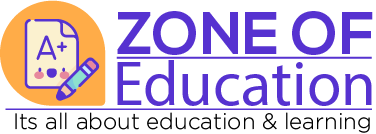
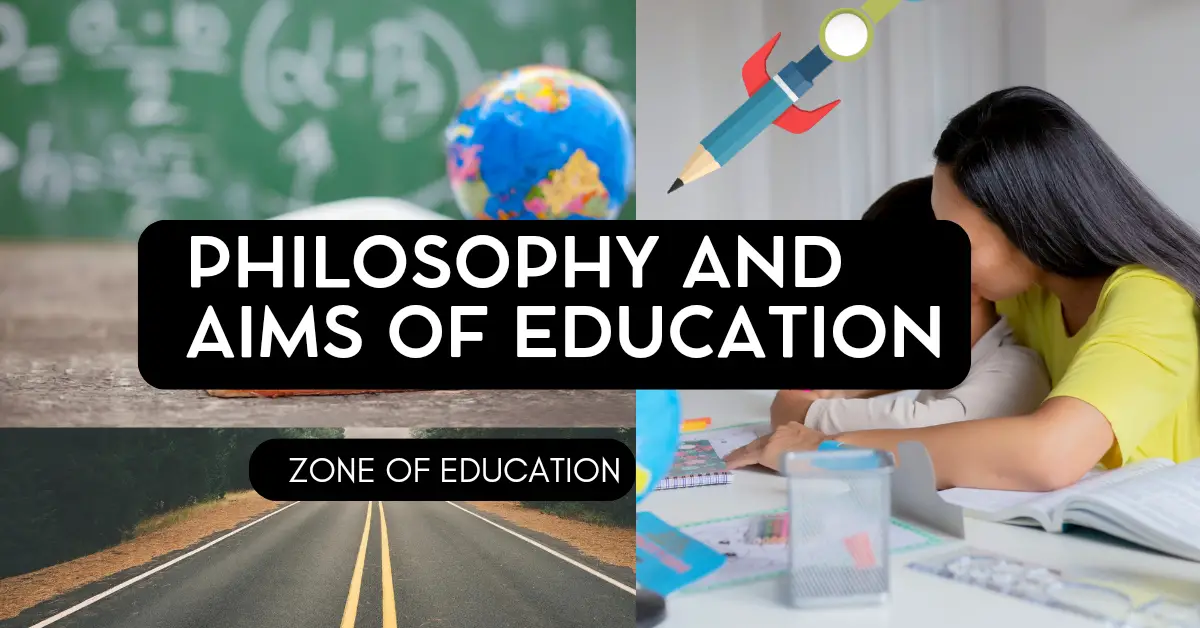

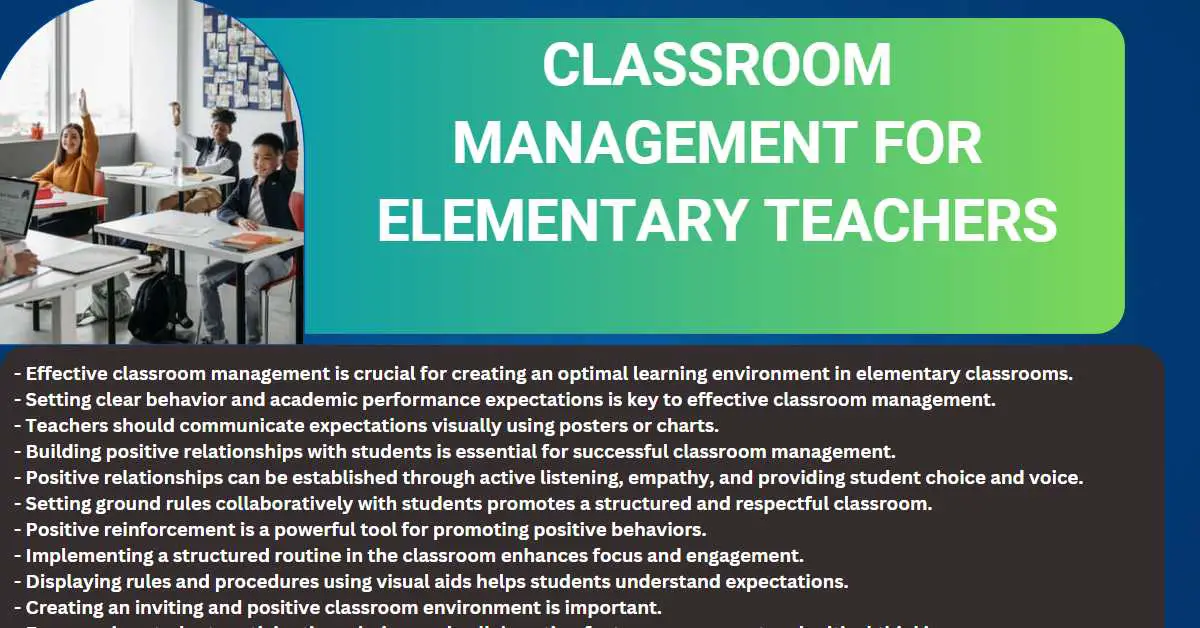
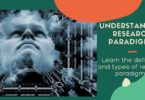
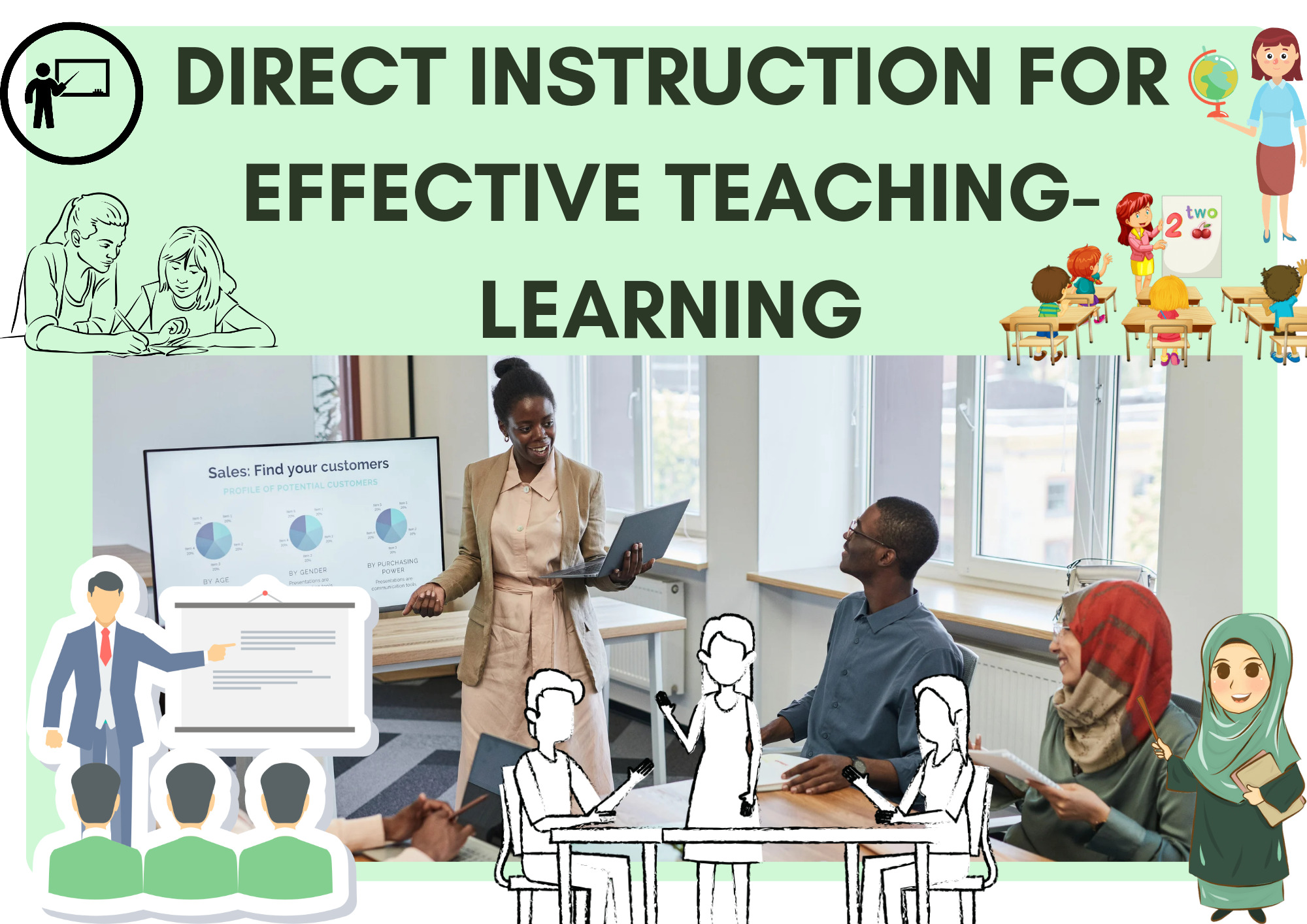
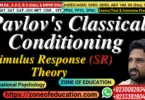
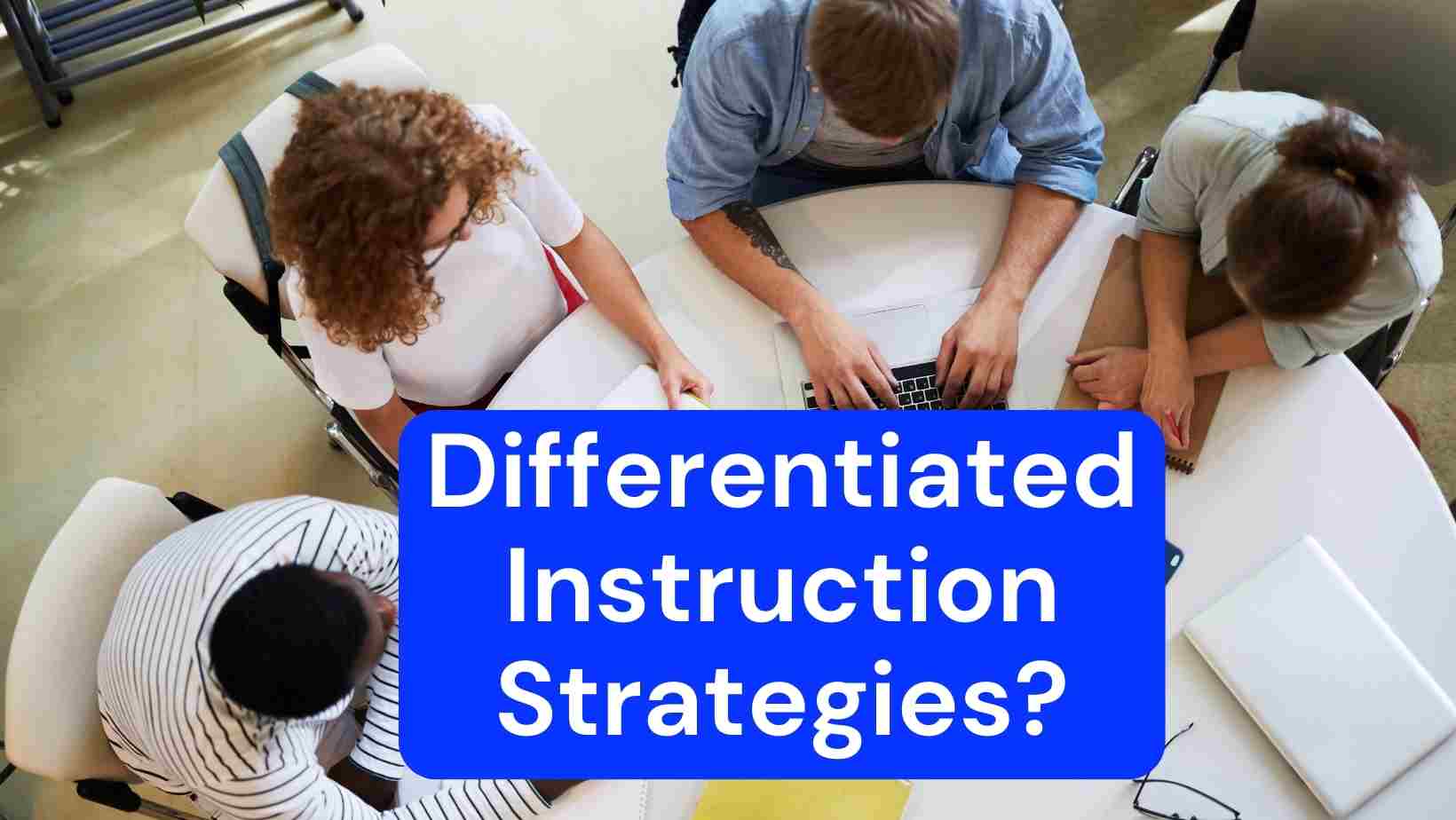
[…] PHILOSOPHY AND AIMS OF EDUCATIONWhat is Early Childhood Education? […]
[…] each student’s unique learning style, interests, and strengths. Dewey’s educational philosophy was founded on the notion that education should not only focus on acquiring knowledge but also on […]
[…] and emphasizes the significance of uniqueness, creativity, and personal growth. The humanistic philosophy of education aims to educate students pertinent to their lives and future ambitions. It highlights the significance […]
[…] any educational philosophy, Perennialism has both advantages and disadvantages. One of the benefits of Perennialism in […]
[…] has been already pointed out, the most important aim of education, according to the idealist thinkers, both ancient and modern, Eastern and Western, is the […]
[…] points out that education aims at the transformation, synthesis and sublimation of […]
[…] within their environments finds theoretical grounding in pragmatism. This alignment positions education to play a leadership role in research aimed at comprehending the intricate relationships between individuals and their […]
[…] is an educational philosophy that focuses on life and growth. It emphasizes practicality and experience as the criteria for […]
[…] is an educational philosophy that emphasises practicality and […]
[…] viewed education as the creation of a sound mind in a sound body. Education aims to develop an understanding of the world and cultivate […]
[…] However, the existentialists distrust system making and theorization. According to them, the true aim of philosophy is action and not theory. Therefore, they do not cogitate over traditional […]
[…] Aims of education […]
[…] is another popular educational technology platform that aims to enhance learning experiences for students and provide valuable data for teachers. Similar to […]
[…] questions of existence, knowledge, and value. Rooted in ancient Greek intellectual traditions, philosophy encompasses a diverse array of inquiries and approaches aimed at unraveling the mysteries of the human condition and the nature of reality itself. In this essay, […]
[…] consideration of individual differences, research-based approach, and collaborative endeavors aimed at improving educational outcomes for all […]
[…] Reflects the aims and values of education prescribed by philosophy; designed to transmit philosophical values and… […]
[…] Philosophy and aims of education are interconnected, and the philosophy of education influences the aims of education. Different philosophies of education lead to different aims of education. For example, education in Perennialism aims to develop critical thinking skills and understanding of universal truths, while the aim of education in essentialism is to develop basic skills and knowledge necessary for students to become productive members of society. […]
[…] pedagogical principles, are carefully selected and adapted to suit the diverse needs of learners, aiming to create enriching and transformative educational […]
[…] and progressivism are, to some extent, similar but also different and opposing philosophies in education, each with strengths and weaknesses. Essentialism emphasizes the importance of focusing on what is […]
[…] an educational philosophy, Pragmatism has many benefits but also detractors. Ethical issues and aesthetic critiques are some […]
[…] philosophy and aims of education, are interrelated and mutually reinforcing. The philosophy of education shapes the aims of […]